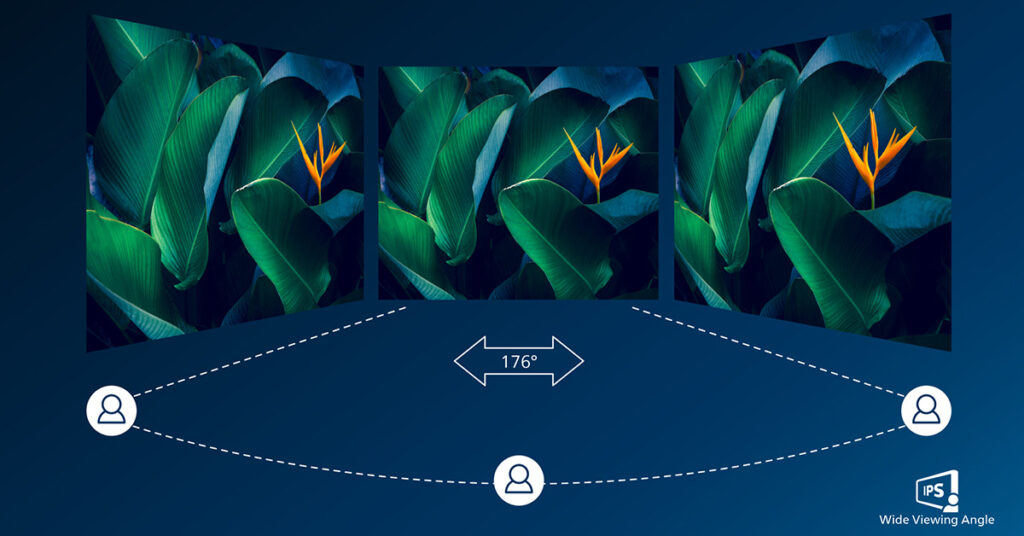IPS Panels: What Are They?

So, you are thinking about buying a monitor? Then it’s time to decide on what monitor panel suits you best. This is a difficult decision to make, as a monitor’s quality not only significantly relies on monitor panels, but it also has a lot to do with other specs; such as refresh rate, resolution, and more.
In this article, we will provide a brief introduction to IPS panels and what you should know about them before purchasing.
What is the IPS panel?
Your first question probably is: What is an IPS panel?
Well, IPS literally means “In-Plane Switching” and IPS panels leverage liquid crystals aligned in parallel to produce a vibrant color gamut. But, what exactly makes them special? The IPS panel’s liquid crystals are able to shift and this ultimately creates wider and better viewing angles when compared to other panel options like TN.
Going deeper into the benefits of IPS panels, the wide viewing angles allow for accurate color perception from any angle the user looks at the screen. So, when comparing IPS to TN Panels, color accuracy at every viewing angle is one of the major benefits.
What are IPS panels good for?
Apart from the excellent viewing angles that we mentioned above, what makes IPS panels shine is the color accuracy and consistency: This is the main advantage of IPS Panels.
Therefore, it is perfect for those working in professions or participating in hobbies that demand accurate color. Not to mention, another important aspect of IPS panels is that they support the Adobe RGB color space.
All in all, an IPS panel is good for many things, but it is best known for its excellent viewing and color accuracy at any angle.
Is IPS better than LED?
This is a great question that has sparked much debate in recent times. Below we will list the pros and cons of IPS vs. LED panels.
| Pros | Cons | |
| IPS | -Amazing color accuracy -Wide viewing angles -High general brightness | -Contrast ratio -More power consumption |
| LED (TN and VA) | -Slim design -High local brightness levels -Sharp image quality | -Inconsistent contrast ratio -Short viewing angles |
So, based on this table above, whether an LED display or an IPS display is better is entirely based on user preference. However, one of the big pros of IPS panels is the wide viewing angles. So, if you are looking for a monitor with a large screen and need to open multiple windows, then wide viewing angles with the utmost color accuracy would greatly help your workflow productivity.
In addition to a core comparison of IPS vs. LED panels themselves, we can also compare the additional features that add to the mix. When generally comparing refresh rates, new, premium versions of IPS monitors compete with LED displays and can reach high refresh rates.
So, when comparing the refresh rates of IPS monitors to that of LED monitors, both are viable options for action-packed gaming: It is just a matter of whether you would like to have the wide viewing angles that IPS panels offer.
Is an IPS Display good for the eyes?
An IPS display, when correctly calibrated, is generally not harmful to the eyes. As a matter of fact, IPS displays are known for color accuracy and the brightness/contrast can be adjusted without sacrificing quality.
In addition to several of Philips’ IPS panel monitors, many are also tested with TUV Rheinland Eyesafe Certification. This important feature of the monitor ensures that it is meant to ease the added stress that blue light can cause to the eyes after prolonged hours in front of the monitor. Therefore, monitor brands such as Philips are making strides in technology so that the future of monitor displays is more eye-friendly.
Overall, IPS panels are a great choice for professionals and gamers alike. They offer wide viewing angles and incredible contrast ratios no matter where you are looking at the screen from.
For more information on Philips’ monitor selection, please visit the website here.
